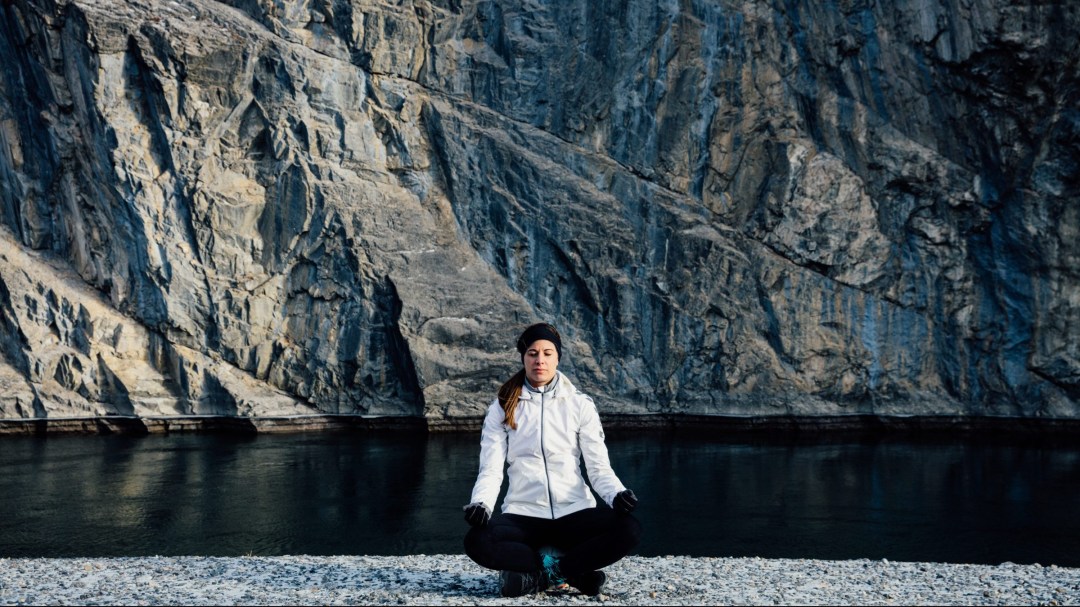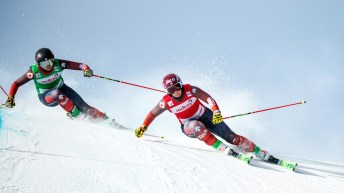Team Canada athletes share their mental health challenges
Every day, we are inspired by Team Canada athletes.
And that inspiration is certainly not limited to their competitive accomplishments. We can learn so much from their stories, including how they get through difficult times and overcome their obstacles.
For Bell Let’s Talk Day, we asked some Olympians and Olympic hopefuls to share the mental health challenges they’ve faced during the ongoing pandemic and the actions they took to help themselves. We thank them for their openness and candidness about their struggles.
Kia Nurse, Basketball
“The abrupt halt to my training was very hard on my mental health. As my offseason began I was eager to get back on the court and in the weight room to improve my game and heal my body. However, health and safety are of the utmost importance. To overcome this, I started to focus on one or two things I could do to get better from home: in-home workouts, outdoor runs, and eating right. I found focusing on small things you can control made a big difference.”
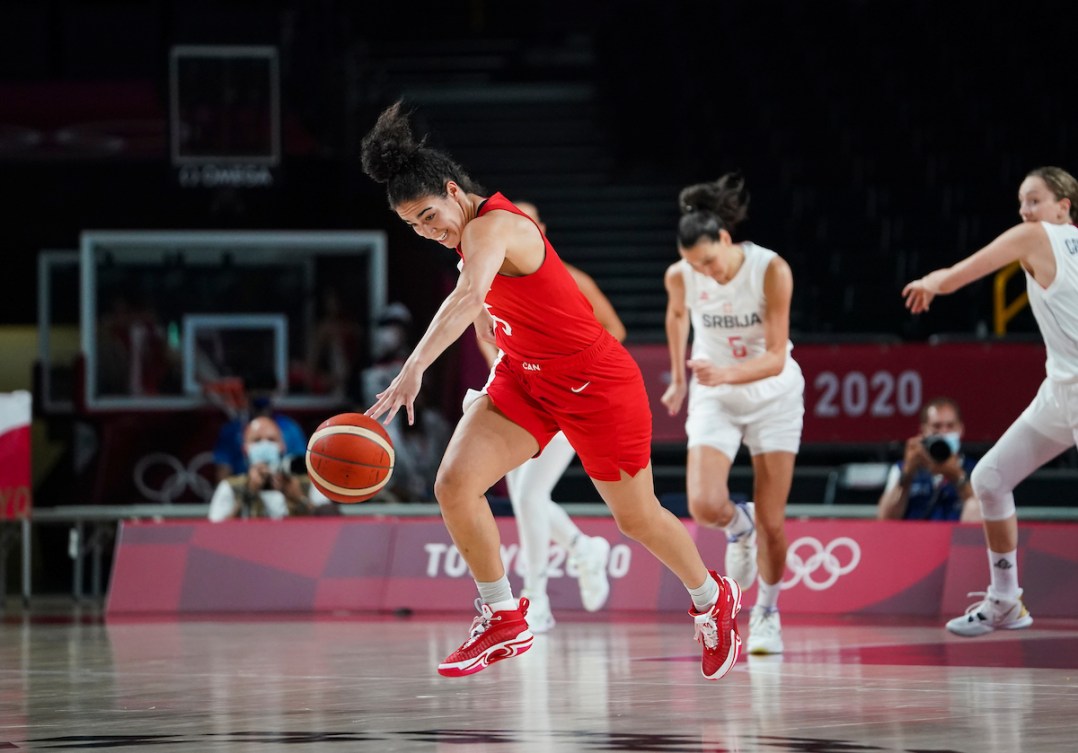
Antoine Valois-Fortier, Judo
“Being an athlete has been my day to day ‘job’ for the past 12 years. We are constantly working on getting better at our sports. We set objectives and make a plan to get there with a strict schedule and evaluations along the way to know if we are heading in the right direction. When the COVID-19 situation hit in March, I lost all of that. Every tournament, training session, objective and schedule I had disappeared and I had no idea when it would come back. For me, that was very challenging mentally. To have so much uncertainty and no calendar with objectives on it to motivate myself for the first time, made my days very long. I was becoming anxious with the future and felt lost.
RELATED: Antoine Valois-Fortier: Readying for judo’s return to action and its birthplace
The solution to counter that for me came in three parts. The first was to keep my objectives short term. Asking myself questions like ‘What am I going to do today to get better? What can I do now at this very moment?’ helped me stay in the present moment and focus on what I can control. The second part is finding my ‘energy givers’ and my ‘energy drainers’. For me, my biggest energy giver was running. It calms me down and makes me feel good. My biggest energy drainer was social media, so I limited their use. The last part was just to keep in touch with family and friends as much as possible. I would have a good call or two a day to talk to loved ones so we could boost each other’s spirits up.”
Danielle Lappage, Wrestling
“The Games were postponed and soon after, I sustained a significant injury. In those early days, I felt as though my dreams had been stolen from right under my nose. I was depressed and anxious. I sought professional mental health support and leaned on my partner, family, and friends to get me through those dark days. I am now confident and optimistic, as we fast approach #Tokyo202ONE.”
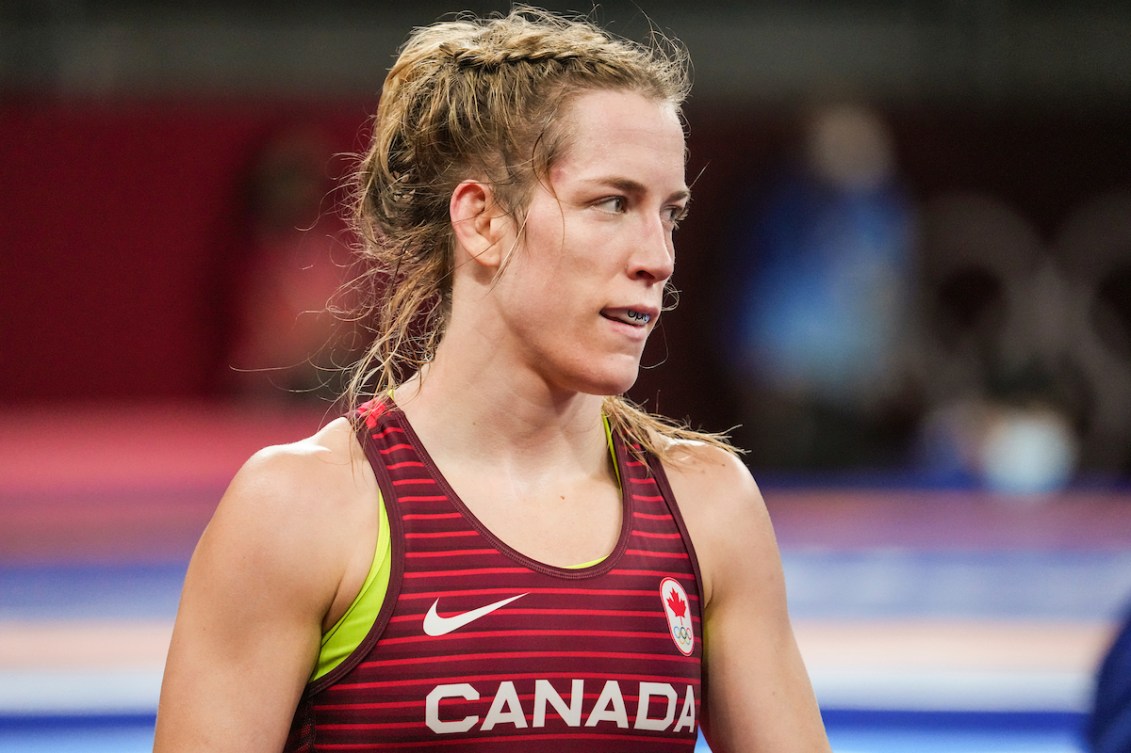
Kelsey Mitchell, Track Cycling
“2020, the year of the highest highs and the lowest lows. March 1, I found out that I had qualified for the 2020 Olympics. Three weeks later, I found out the Olympics were not going to be happening due to COVID-19.
The emotional roller coaster that I went on in that month was exhausting. All the sacrifices, all the hours of training, all the stress — everything, for a moment, felt absolutely pointless. But it was in this moment that I realized feeling bad for myself wasn’t going to change anything. I realized it was my choice; what I did from this moment forward could be what truly defined me as not only an athlete, but as a person.
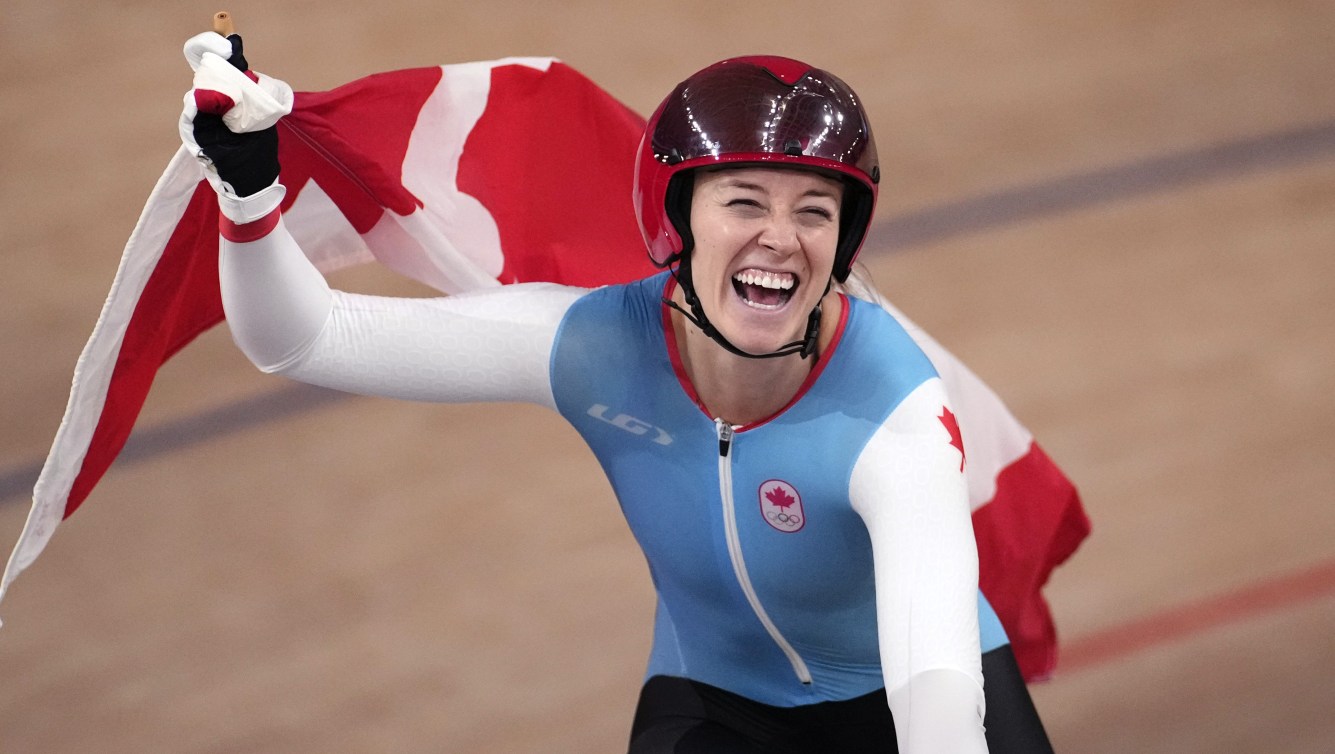
I made the choice to see the positives. I was healthy, I was able to train, I had a lot of support, I even had a spot locked in at the Olympics. Instead of seeing the postponement as a negative, I was able to take a step back and truly see it as a positive. I had gained an extra year to close the gap between myself and the best in the world. Now, not only was I healthy, but I was hungry! One more year to get better and stronger. One more year to prepare for my Olympic debut. One more year to be at my absolute best, and to represent Canada on the biggest international stage. Mindset is everything and 2020’s lows taught me that.”
Sarah Douglas, Sailing
“There’s no doubt that the postponement of the Olympic Games had an impact on my mental health. I struggled with motivation at first; I had to gain perspective and re-adjust my goals. I used journaling and meditation to process emotions and channeled my focus on items in my control. I challenged myself in new endeavors and made sure I brought joy to my days on the water.”
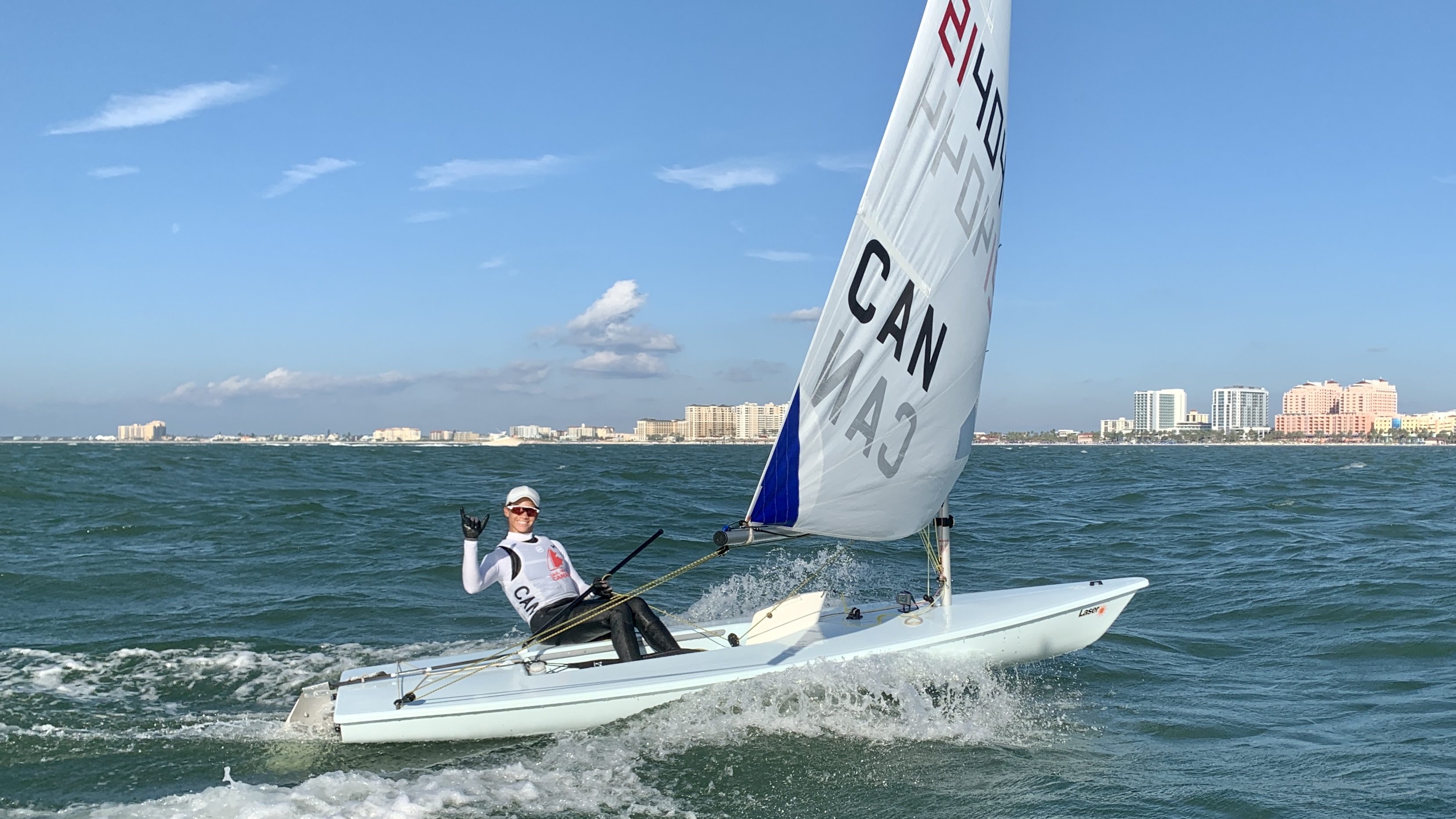
Brittany Crew, Athletics
“I have had a struggle with mental illness since 2013. I suffered for many years before seeking the help that I needed. I have been stable for about two years now, therefore, I was in a lot better place to deal with the pandemic than the average population.
Obviously the cancelling of competitions (especially the Olympics) was devastating. The hardest challenge was finding a way to continue to train during the first lockdown in March 2020. However, I am a creative and resilient individual. I reached out to my uncle and aunt who live just outside of Guelph. They have a farm house there and it is as isolated as you can get. I moved in with them so that I wouldn’t be alone in Toronto. My uncle built me a shot put circle out of wood and he gave up his living room so that I could make a weight room. My old high school teacher lent me all the exercise equipment I needed. I just tried to stay in a routine as much as possible and focused on things I never had the chance to before. I did a lot of self introspection.”
Vincent de Haître, Track Cycling/Speed Skating
“The challenges of training in two sports for the 2021 and 2022 Olympic Games are so immense, something only the closest members of my support team (coaches, physiotherapist, psychologist) can truly understand. It is these people I lean on to keep my body and mind moving forwards, through, and over every obstacle along the way.”
RELATED: 2 sports, 2 Olympic Games, 7 months. Challenge accepted.
Stephanie Labbé, Soccer
“2020 was a challenging year in so many ways. The biggest challenge for me was my heightened anxiety. Not having my sport as my usual outlet proved to make this experience all the more challenging. Soccer is usually my happy place, the time when I can forget about everything and just play, where I am the most confident, free version of myself. As the year went on, my anxiety increased to a level where some days I felt like I couldn’t function, I couldn’t think straight, I couldn’t stop crying, and sometimes, I couldn’t catch my breath.

I am so incredibly grateful for my girlfriend Georgia who was my rock, my safe haven. She reminded me to breathe, gave me space to feel and be heard, and loved me unconditionally. I am grateful for my family and friends who constantly checked in on me, who showed me love and compassion, who made sacrifices for me. And I am grateful for my sports psychologist who helped keep me grounded, brought me back to clarity, and back inside my own body when I felt like I was floating away. It’s ok to not be ok. Check in on others, and reach out. You don’t have to struggle alone. Allow your loved ones to be there for you. Keep going, no matter how slow, keep going.”
Caileigh Filmer, Rowing
“I couldn’t get out of bed in the morning, let alone care for myself on my own. I took a big step back from sports and focused on what would help me get healthy. It was no longer about performing in sports, but being able to get through day-to-day things. When I was able to return, it felt like I had nothing to lose and was just grateful to be there, so I gave it my all every day.”
Brandie Wilkerson, Beach Volleyball
“Last year I was most impacted by the Black Lives Matter movement. These events became a catalyst for pain and despair but also for hope, love, and change. I found strength in focusing on what my role was in the world I wanted to see. I found confidence in the truth I spoke, the people I connected with, and aligning my personal goals to a higher purpose – being deeply proud for the beautiful intricacies of race and cultural fight for equality, understanding and acceptance both on and off the court so that for generations to come, all people of colour know that they will always have a spot exactly where they choose to be.”
Skylar Park, Taekwondo
“As I prepare for my first Olympic Games, focusing on my mental health has been a top priority. The journey of an elite athlete has its ups and downs, especially during these uncertain times. The disruption in training, the stress of always changing restrictions, and the pressure to maintain a readiness to perform all while trying to stay safe have been the greatest challenges of my life. I am extremely grateful and blessed that my greatest strength comes from the support of my family, who has always focused on the importance of mental health as equally as we do on physical health. Whatever the source of your mental strength, embrace it and work on it daily.”
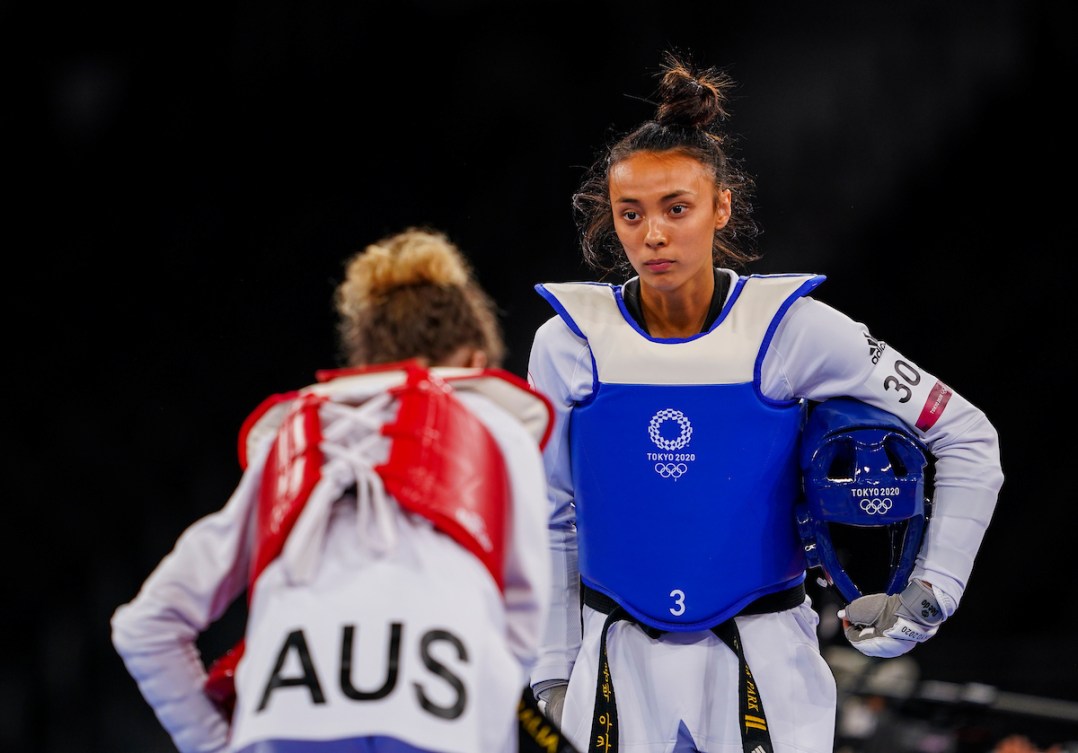
Cynthia Appiah, Bobsleigh
“The hardest part about 2020 was the sense of dread I felt during the summer when our team camps were being cancelled and facilities in Toronto and Calgary were being closed. I felt a sense of hopelessness, like ‘what’s the point of doing all of this anymore?’ I was exhausted from having tried to stay positive throughout the early parts of the pandemic and legitimately had thoughts about quitting. The worst of it was during one particular week where I had no energy to train and just vegged on my couch. I was convinced that there wouldn’t be a competition season in the winter and with where I was in my qualification process for the Beijing Games, it would have been next to impossible to make it.
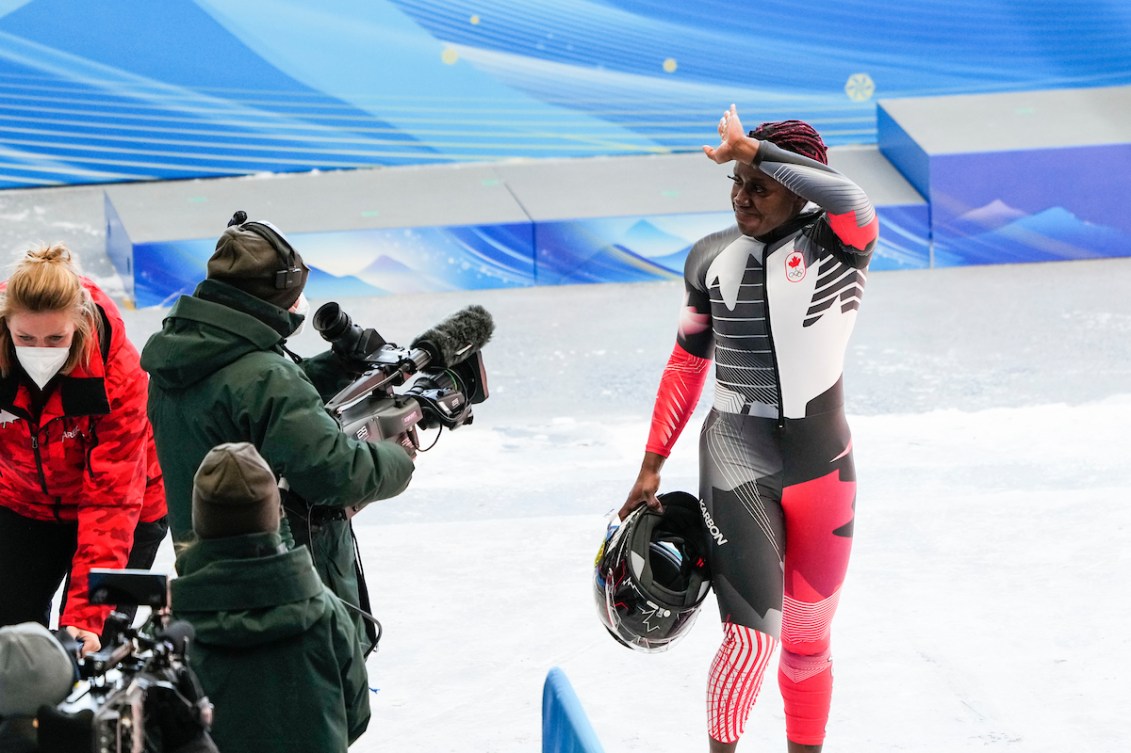
RELATED: A desire to be not just the best, but also the best representation
I somehow got out of that ‘funk’, knowing that I couldn’t give up because for every moment of negative news, there were little bits of optimism that would poke through. So, I kept pressing on in hopes that every ‘we’re not sure’ we heard from our coaches would turn into ‘it’s for sure going to happen’. I had to trust that our national and international federations wouldn’t give up on hosting a competition season and therefore neither could I.”
Meaghan Benfeito, Diving
“The biggest challenge I’ve had to face during this pandemic was to stay motivated and keep training. There were plenty of days where I definitely didn’t want to work out. The thought of giving up was for sure there but what helped me get through all of it was that I was able to count on my support system around me. I allowed myself to go through my emotions and cry when I needed to. I also kept a daily routine and a goal for every day, regardless of how I felt.”
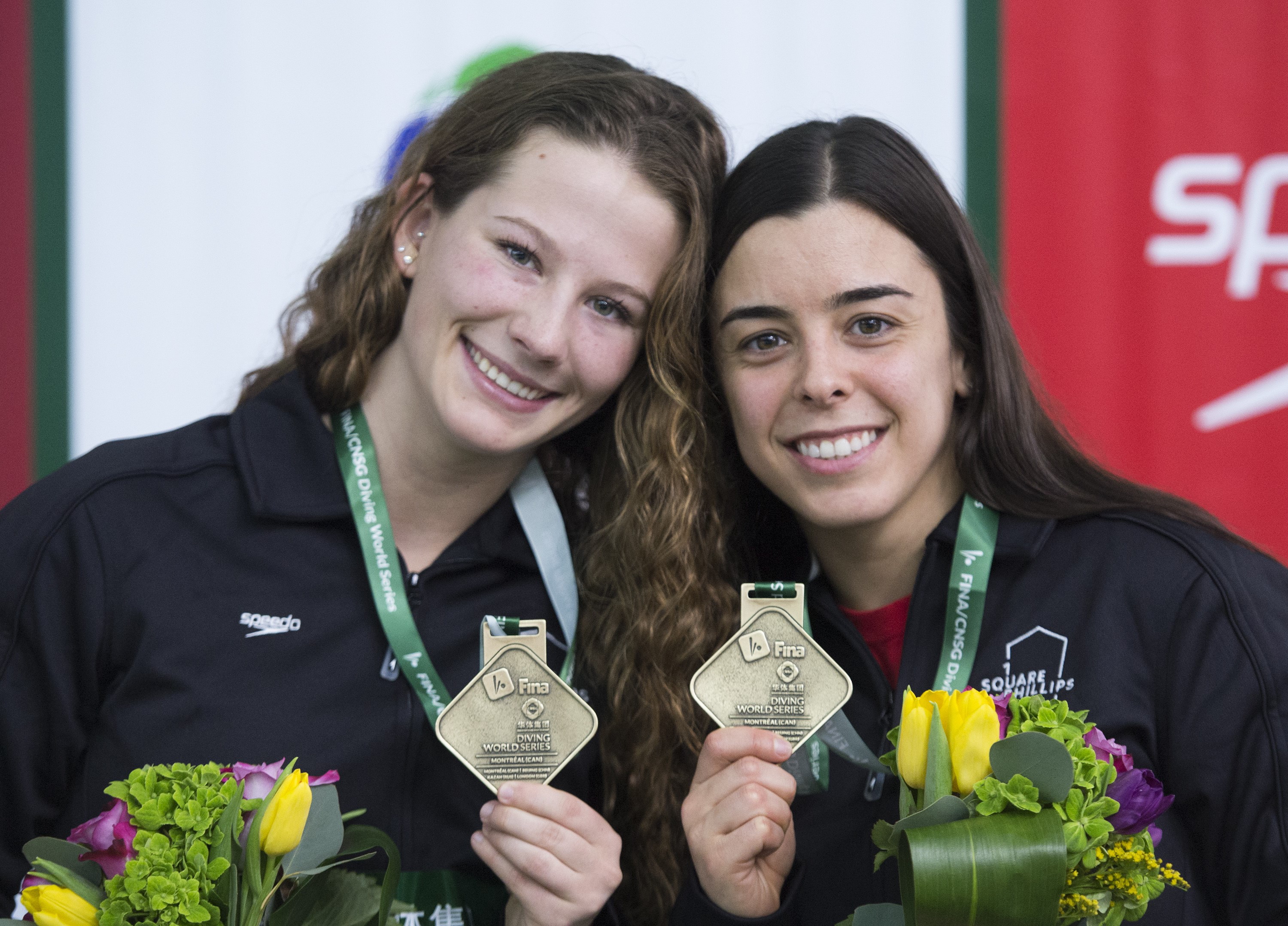
Caeli McKay, Diving
“In 2020 I really struggled with finding my identity without sport every day. I had to find value in myself that wasn’t defined by diving and realize that I am not ‘just a diver’. I took a lot of time to acknowledge my past successes in sport but also my successes as an individual as a whole.”
Larissa Franklin, Softball
“In 2019 I experienced burnout and battled with mental health. It was my seventh year on the national team and I went into the season as the starting centerfielder and with the opportunity to help my team qualify for the Olympics. I believed it was supposed to be one of the best years of my softball career. Instead, I stepped up to the plate over and over and asked myself, ‘Why does it matter if I get a hit right now?’. I lost my motivation, the sport became a job full of expectations, but mostly I was frustrated that I did not feel in control of my thoughts and actions.
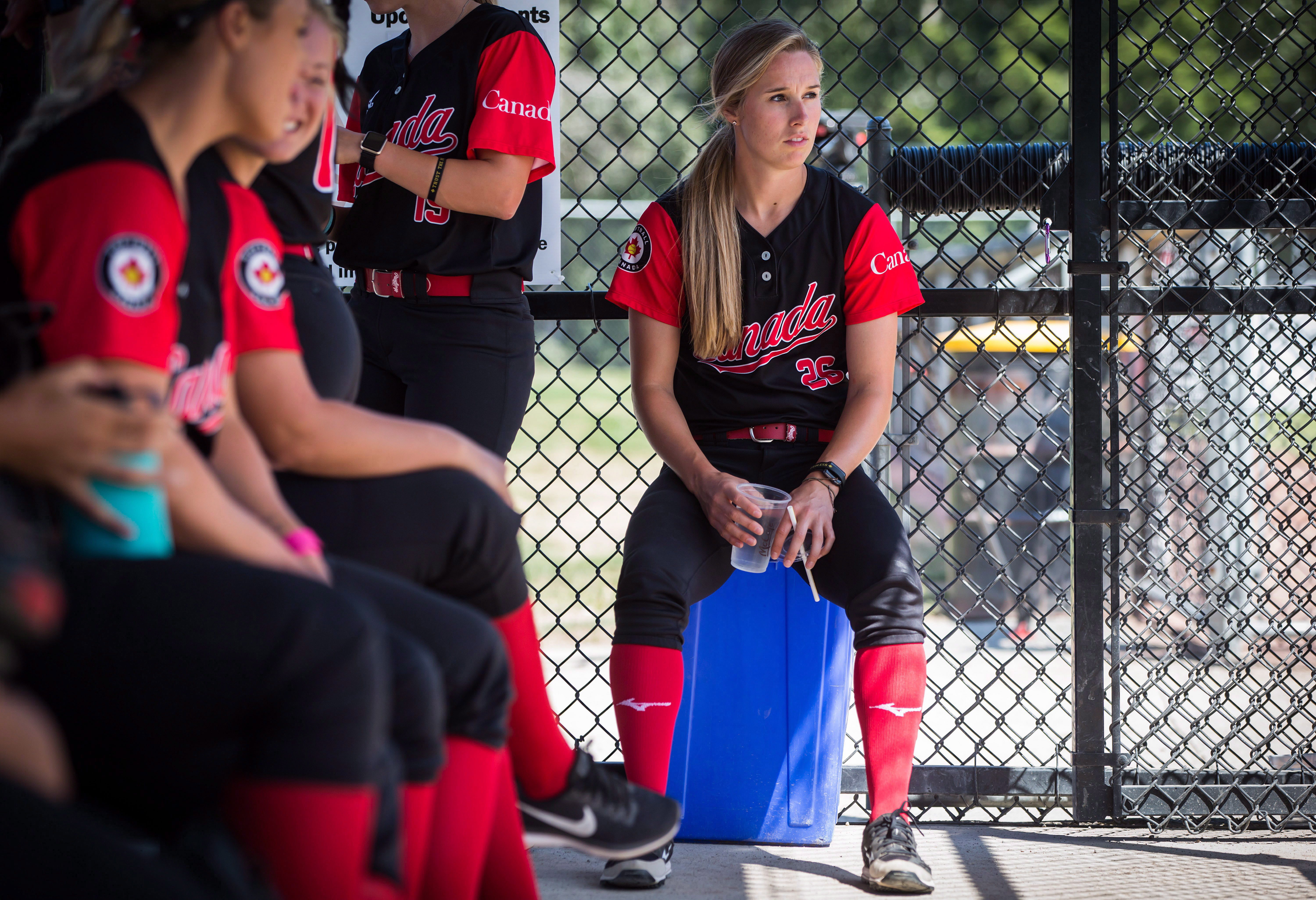
Day after day I told myself, ‘If you don’t complete 10 shuttle runs in under 1 minute you’re not going to the Olympics’. ‘You need to hit an extra 30 minutes because your parents have sacrificed so much to watch you play!’ ‘I didn’t do enough, I need to do more to be an Olympian.’
I was burnt out and it was presenting itself as depression. You would expect qualifying for the Olympics on home soil to be one of the most memorable moments of your career. For me, all I could feel was relief that the job was done and I could work on my mental health without worrying about it affecting my performance. Every month consisted of developing new daily practices and coping skills, while being kinder to myself. Every month I felt closer to feeling in control.
2020 was my ultimate test to implement my new skills and daily practices while facing challenges such as the postponement of the Olympics and not being able to see my family around Christmas. By focusing on my mental health in 2019, I was equipped with the tools to take on the challenges of 2020.”
François Imbeau-Dulac, Diving
“I struggled with eating disorders from 2012 to 2015. When we went into lockdown, my relationship with food was still challenging. I was avoiding fatty and high calorie foods and couldn’t eat with others. I was eating because I had to, not because I enjoyed it.
During the lockdown, I took the time to deconstruct my food perception and eating behavior. Being away from the pool helped me build a healthier relationship with food and learn to appreciate a meal with my family without any guilt.”

